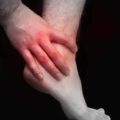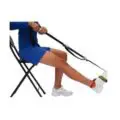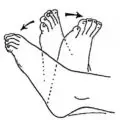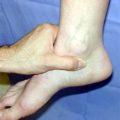*This page may contain affiliate links. When you buy through these links, we may earn a small commission at no extra cost to you.
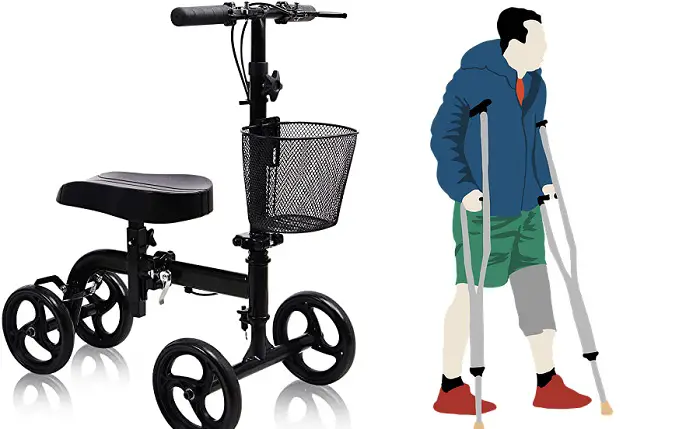
If you just recovered from a broken ankle, foot operation, or any kind of surgery or injury and you are confused between a knee walker and crutches, then my suggestion would be to go for neither.
The simple reason behind it is that an assisting movement device will be no less than a dragging burden for you that you must learn to control and navigate.
However, not going for either will only be an option when you have the capability and time to be on rest completely for a long period.
But people have the urge and need to go around, and the sheer idea of being completely immobile till they can walk is far more displeasing than using an assisted mobility device.
Hence, to move forward in your life, you should find out which one will be the best option for you, between a knee walker and crutches.
IMHO, there is no single device that can help all. There are always advantages and disadvantages present in both.
You should therefore go through the pros and cons of each of these devices to know exactly which will be the right option for your specific situation.
Crutches – The Pros and Cons
For those with good upper body movement and strength, crutches will be a better option to walk around once you learn to use them well.
However, walking with crutches will require effort and practice, but nothing is better than practicing some exercise while recuperating from surgery.
The good thing is crutches are pocket-friendly. You can even get them on rent from a medical supplier.
The drawback with them is it’s difficult to steer crutches.
Also, because all your weight falls on your armpit- you may sometimes find it irritating. Sometimes it may also cause wear and tear on your shoulders and back.
A lot of people with injured ankles and legs may consider crutches misbalancing and unsafe.
Plus, with your arms and hands involved in crutches, you may find it difficult to use them for normal things like opening doors.
People often find it difficult to walk on stairs with crutches.
All in all, crutches are clunky items that may fall a lot of times and may not be easy to fit through car doors or house doors.
Knee Walkers – The Pros and Cons
Being close to the floor, they offer more stability than crutches.
They come cushioned to offer comfort and allow you to rest during an injury or cast without making you put all your weight on it.
Once you know how to maneuver it, you can walk around pretty fast. And, as you stop, you have both your hands-free.
They are simple to use, and you don’t have to involve your upper body strength alone for movement.
They are not as clunky as crutches, and hence the chances of slipping on wet floors are less.
When it comes to the disadvantages, knee walkers can get wobbly if you lean too much in the front, back, or sideways.
Also, you may take some time to learn how to walk straight. They are slower in comparison to crutches on several surfaces.
And one of the major disadvantages of knee walkers is that you cannot walk on stairs with them.
If the doorways or halls are too narrow, then it would be difficult to walk with a wider front wheel base knee walker.
Lastly, they are comparatively costlier than crutches.
What Are The Best Alternative Crutches?
You can use several devices which aren’t classified as a traditional crutch.
Often knee scooter or knee walker is classified as alternative crutches practically used at malls, sports events, and amusement parks.
They help you in getting around easily with a foot injury. Some other alternative crutches are knee crutches, wheelchairs, and forearm crutches.
In case you need to use both your hands for some other work OR if you want to keep your hands free, you have an alternative crutch, too, and the best one to go for is the iWalk 2.0 knee crutch.
It offers you hand-free and pain-free movement for any weightless bearing injuries below the knee.
Plus, it also helps you to enjoy your free and functional lifestyle.
Benefits of Hands-Free Crutches iWalk 2.0
People who have used crutches know what a pain it is when they are unable to use their hands.
It is even difficult to open doors or use the phone in such a situation.
The hands-free crutches offer the convenience of not holding the crutches by hand while maintaining support and stability simultaneously.
- Enjoy natural walking movement while recovering.
- Get support and stability and the freedom to use both your hands.
- No pain in hands, forearm, and underarm
This crutch takes the traditional peg leg to another level by allowing you to rest your knee on it comfortably on the cushioned leg platform.
It wipes out the need to use your forearms or armpits to support your full body weight or get any pain or soreness in your hands, wrists, or armpits.
Overall, if you want to go for the best alternative crutch, you get the benefit of being completely hands-free with iWalk 2.0.
When Can Wheelchair Prove to Be A Better Option?
But, if nothing of the above works for your condition or you are facing strength or coordination problems when using one of the alternatives, then stop!
You can always use the option of a wheelchair.
Wheelchairs are especially the best alternatives to crutches when both your legs are injured, and you cannot use crutches, scooters, or a walker.
A wheelchair will not strain your armpits or wrists as you don’t have to balance it or practice using it perfectly well.
However, if you have stamina or strength problems, you may not be able to use a wheelchair on your own.
Also, wheelchairs aren’t a convenient option to help you do your daily errands.
Conclusion
Picking the right crutches is essential, but if you don’t want to use them at all, then crutch alternatives may be the best option for you.
Some popular alternatives include knee scooters, walkers, and hands-free crutches.
They offer you options that a crutch may fail to provide.
Amongst all the reviewed products, iWalker 2.0 is the best option. It is recommended for non-weight-bearing injuries.
If all your requirements are well-settled, then you should go for it.
Lastly, you should consult your doctor to get your condition properly evaluated and know which option will be best suitable for you.
Incoming search terms:- Knee Walker
- alternative to crutches broken foot
- is a knee walker better than crutches


